In a world where businesses are racing to the cloud, Google Cloud Platform (GCP) stands out like a unicorn in a field of horses. It’s not just about storage and computing power; it’s about unleashing the full potential of innovative solutions. With GCP, companies can scale faster than a toddler on a sugar rush, all while keeping their data secure and accessible.
Imagine having a toolkit that not only helps you build but also offers insights to make smarter decisions. GCP does just that, combining cutting-edge technology with user-friendly interfaces. Whether you’re a startup or an enterprise, this platform has the magic wand to transform your operations. Dive in, and let GCP take your business to new heights—because who doesn’t want to soar above the competition?
Table of Contents
ToggleOverview of Google Cloud Platform (GCP)
Google Cloud Platform (GCP) offers a comprehensive assortment of services tailored for scalable cloud computing needs. Businesses leverage its diverse tools to optimize operations and enhance performance. Organizations benefit from advanced data analytics, machine learning, and artificial intelligence capabilities that foster informed decision-making.
Infrastructure as a Service (IaaS), Platform as a Service (PaaS), and Software as a Service (SaaS) models are all supported within GCP. Each model provides flexibility, enabling users to select the best solutions for their unique requirements. Kubernetes Engine offers robust container orchestration, while App Engine simplifies application development and deployment.
Security stands as a primary focus in GCP. It adheres to stringent security protocols, ensuring user data remains protected. Identity and Access Management (IAM) allows for precise control over resources, enhancing security measures further. Compliance with industry standards, such as GDPR and HIPAA, reinforces commitment to user trust.
Collaboration tools like Google Workspace integrate seamlessly with GCP, enhancing team productivity. Real-time communication and file sharing foster a cohesive work environment. Developers find value in GCP’s API management and support for various programming languages, which accommodate different project needs.
With a global network of data centers, GCP ensures low latency and high performance. Scalability options allow businesses to expand resources based on demand. Competitive pricing structures provide cost-effective solutions, particularly for startups and expanding enterprises.
Google Cloud Platform serves as a versatile, powerful solution for organizations that seek to innovate and excel in a rapidly evolving digital landscape.
Key Features of GCP
Google Cloud Platform (GCP) offers a robust range of features that empower businesses to achieve their goals efficiently.
Compute Services
Compute services deliver flexible resources for applications and workloads. GCP provides options such as virtual machines through Compute Engine and containers via Kubernetes Engine. Scalability allows users to adjust resources based on demand, ensuring optimal performance. Solutions such as App Engine simplify application development, enabling developers to focus on code rather than infrastructure. These compute offerings support various programming languages, fostering innovation and collaboration among teams.
Storage Solutions
GCP presents diverse storage solutions to cater to different data needs. Cloud Storage allows organizations to store and retrieve any amount of data with unlimited scalability. For structured data management, users can utilize Cloud SQL and BigQuery for powerful analytics. Persistent Disks provide high-performance block storage for virtual machines. Dynamic backup options and integrated security measures further enhance data protection and accessibility.
Networking Capabilities
Networking capabilities on GCP ensure reliable and efficient global connectivity. The platform features a private fiber-optic network that delivers low-latency performance across regions. Cloud Load Balancing distributes traffic intelligently, optimizing resource usage and enhancing user experience. Additionally, Virtual Private Cloud (VPC) enables customized network configurations, promoting secure communication between resources. Dedicated interconnect options facilitate high-bandwidth connections for enterprise needs.
GCP Pricing Models
Google Cloud Platform (GCP) offers various pricing models tailored to meet diverse business needs. Understanding these models helps businesses manage costs effectively while utilizing GCP’s extensive services.
Pay-As-You-Go
GCP’s Pay-As-You-Go model provides flexibility by charging users only for the resources consumed. Users gain full access to services without long-term commitments. This model suits businesses that experience fluctuating demand, allowing them to scale resources up or down as needed. Costs accumulate based on actual usage, ensuring no waste and potential savings during low demand periods. GCP’s transparent pricing structure aids in budget forecasting and ensures users can optimize spending according to their resource requirements.
Sustained Use Discounts
Sustained Use Discounts reward users for consistent resource utilization. When resources are active for a significant portion of the month, GCP automatically applies discounts, reducing overall costs. This model appeals to businesses with predictable and steady workloads. Users benefit from lower rates without needing to sign long-term contracts. Discounts can significantly decrease expenses, particularly for virtual machines exposed to continuous use. GCP’s commitment to providing competitive pricing makes it an attractive solution for organizations aiming to maintain high performance while managing their budgets.
Advantages of Using GCP
Google Cloud Platform (GCP) provides various benefits that enhance business operations in the cloud. Its design accommodates diverse needs from startups to large enterprises.
Scalability
Scalability stands out as a primary advantage of GCP. The platform allows businesses to adjust resources efficiently, catering to fluctuating demands. With services like Compute Engine and Kubernetes Engine, companies can scale applications seamlessly. Custom configurations make resource allocation straightforward, whether for small projects or extensive enterprise-level applications. Developers leverage these capabilities to focus on creating innovative solutions without worrying about infrastructure limits. Automatic scaling options further optimize performance, ensuring applications handle peak loads without interruptions.
Security Features
Security features of GCP prioritize data protection and compliance. Robust protocols safeguard sensitive information, with Identity and Access Management (IAM) providing granular control over user permissions. Compliance with industry standards like GDPR and HIPAA reinforces trust, making GCP suitable for regulated industries. Additionally, built-in encryption protects data at rest and in transit, eliminating risks from cyber threats. Regular security audits and updates maintain a secure environment, addressing potential vulnerabilities proactively. Collaboration and communication tools, including Google Workspace, operate within a secure framework, enhancing productivity without compromising safety.
Challenges of GCP
GCP offers myriad benefits, but it comes with certain challenges that users must navigate.
Complexity of Services
Complexity stands as a significant barrier for users new to GCP. Many services come with a wide range of features that might overwhelm those unfamiliar with cloud technologies. For instance, configuring Kubernetes Engine demands a deep understanding of container orchestration. Beginners may find it difficult to choose the appropriate service among Infrastructure as a Service, Platform as a Service, or Software as a Service offerings, given their different use cases. Understanding the interdependencies of various components adds another layer of complexity. This intricacy can delay project initiation and hinder effective implementation. Organizations often require additional resources or hiring of specialists to manage these complex configurations efficiently.
Learning Curve
The learning curve associated with GCP can affect user adoption rates. New users frequently encounter a steep learning period before gaining proficiency with the platform. Effective training programs play a crucial role in overcoming this hurdle. Online courses, documentation, and community forums offer valuable resources for learning GCP. However, learning these materials requires time and commitment. Those with prior cloud experience might adapt more quickly, while beginners often find themselves struggling initially. Regular hands-on practice helps in building confidence and competency, but it takes time to achieve full proficiency in utilizing GCP’s suite of services effectively.
Conclusion
Google Cloud Platform stands out as a powerful ally for businesses looking to harness the full potential of cloud computing. Its extensive range of services from advanced analytics to robust security features equips organizations to innovate and scale efficiently.
While the learning curve may pose challenges for newcomers the investment in understanding GCP pays off in enhanced operational capabilities and cost management. With flexible pricing models and a commitment to security GCP remains a top choice for those aiming to thrive in today’s fast-paced digital environment.
Embracing GCP can lead to significant competitive advantages making it a worthy consideration for any organization ready to embark on their cloud journey.



